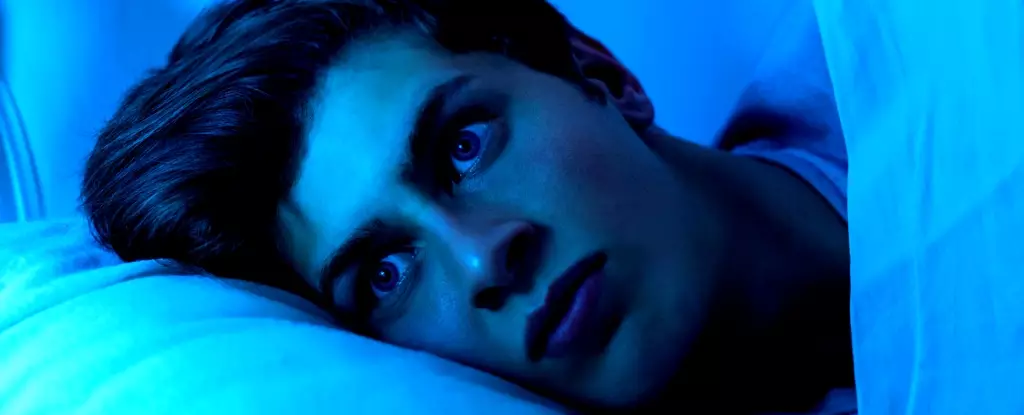Alcohol, the common go-to nightcap for many, has a curious relationship with sleep. On one hand, it can help you easily fall asleep, but on the other hand, it can wreak havoc on your slumber. How is it possible for alcohol to have contradictory effects on your rest? Let’s delve into the intricacies of what happens in your body when you drink alcohol just before bedtime and explore some tips to protect your sleep, especially during festive occasions.
Once you consume alcohol, it swiftly enters your bloodstream and travels to your brain. There, it interacts with neurotransmitters, which are chemical messengers responsible for communication between nerve cells. As alcohol interferes with these messengers, it slows down communication, particularly in certain regions of the brain. This leads to the familiar feelings of relaxation, lowered inhibitions, slurred speech, and the potential for drowsiness and lethargy. The heart and circulatory system are not immune to alcohol’s immediate effects either, as blood vessels widen, causing a drop in blood pressure, which may result in dizziness or lightheadedness.
The Sedative Effect and False Sense of Sleep
Drinking alcohol before bed is akin to flipping a switch. Initially, it has a sedative effect, inducing relaxation and facilitating a smoother transition into sleep. However, during this phase, your blood still holds a significant amount of alcohol. It’s crucial not to be deceived during these initial moments of sleepiness. As your body metabolizes the alcohol throughout the night, your blood alcohol level decreases, causing your brain to rebound from the drowsiness experienced earlier. This “rebound” effect disrupts your sleep, potentially leading to multiple awakenings, particularly during the latter half of the night. Additionally, vivid and stressful dreams may plague your REM (rapid eye movement) sleep, which plays a vital role in emotional regulation and cognitive function. Consequently, insufficient REM sleep explains the grogginess and overall unpleasantness you may feel upon waking.
The detrimental impact of alcohol on sleep does not stop there. Moderate and heavy drinkers experience ongoing sleep disturbances and poor sleep quality over time. The cumulative effect of alcohol abuse leads to further impairment of sleep. If you anticipate indulging in alcoholic beverages during the holiday season, consider the following tips to minimize the negative impact on your sleep:
One effective strategy is to swap every second drink for a non-alcoholic alternative. By reducing the overall amount of alcohol you consume, you can decrease the disruption to your sleep. Moderation is key.
2. Timing Matters
Avoid consuming alcohol close to bedtime. Allowing your body ample time to process the alcohol before sleep will result in less disruption to your rest. Give yourself a chance to fully wind down and metabolize the alcohol to avoid unnecessary sleep disturbances.
3. Eat While You Drink
Drinking alcohol on an empty stomach intensifies its effects, as the alcohol is absorbed more rapidly. To counteract this, make a conscious effort to have a meal or snack while enjoying your drink. A full stomach helps slow down the absorption of alcohol, minimizing its impact on your sleep.
If you want to optimize your sleep, it’s wise to avoid beverages that are rich in caffeine, such as espresso martinis and other caffeinated drinks. Caffeine is known to make it difficult to fall asleep and stay asleep, counteracting the benefits of alcohol-induced drowsiness.
Individuals with sleep apnea, a condition characterized by recurrent upper airway obstruction during sleep, should exercise caution when consuming alcohol. Alcohol acts as a muscle relaxant, potentially exacerbating snoring and lowering oxygen levels in the blood. Limiting alcohol intake proves to be the best approach for minimizing these adverse effects.
Lastly, ensure you drink plenty of water throughout the night. Alcohol can be dehydrating, and staying hydrated can alleviate some of its negative effects on your sleep and overall well-being.
It’s essential to strike a balance between enjoying a drink and prioritizing quality sleep. Understanding the interplay between alcohol and sleep empowers you to make informed decisions when it comes to indulging in alcoholic beverages. By implementing these tips, you can mitigate the disruptive effects of alcohol and increase your chances of waking up refreshed and ready to take on the day. Remember, moderation, timing, and self-awareness are key to achieving a restful night’s sleep while still savoring your favorite drinks responsibly.


Leave a Reply